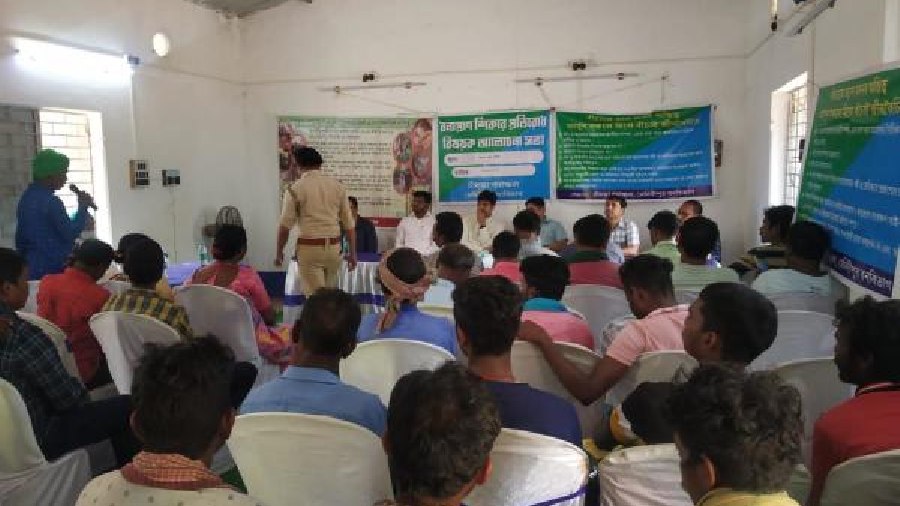Drones in the air. Cops on the ground. Checks on trains.
These are some of the steps that are being implemented to stop the indiscriminate killing of wild animals in the forests of south Bengal during ritualistic hunting, which starts on April 4 every year.
A stern prod in February this year by Calcutta High Court, which had put a complete ban on ritual hunting in 2019, has led to improved coordination between different agencies tasked with stopping the menace, said wildlife activists. But Tuesday will be the first big test, they said.
Every year, many animals and birds are slaughtered in the forests of south Bengal on different days, according to the lunar calendar. Most of the alleged hunters are members of tribal communities, animal activists said.
The hunting festival usually starts in the forests in and around Gopegarh beat in the Medinipur range, around 5km from Medinipur town.
On Tuesday, a couple of drones will be hovering above the Gopegarh forests, said a senior police officer.
“We will fly drones to monitor the forests. More than 30 police pickets will be set up on different roads leading to the forests. There will be constant coordination with the forest department,” said Dhritiman Sarkar, superintendent of police, Paschim Medinipur.
Barun Kumar Behera, the assistant security commissioner of RPF in the Kharagpur division, said strict checks would be conducted at stations and on trains.
“No hunting weapons will be allowed on trains. They will be seized immediately and the people carrying them detained. No one will be allowed to travel without a ticket. We are keeping a constant watch on stations like Ghatshila, Jhargram, Midnapore, Kharagpur, Tamluk and Panskura,” he said.
Many hunters come on trains, often from neighbouring districts and states.
“We have also been conducting awareness programmes in the villages,” said Sandeep Berwal, the divisional forest officer of Midnapore.
Berwal, Sarkar and Behera attended a meeting on March 24 that was chaired by district judge Amit Chakravorty. Ways to curb hunting in Paschim Medinipur were discussed.
Similar meetings have been held for Bankura, Purulia, Jhargram and Murshidabad as well.
In an order dated February 20, a division bench of Calcutta High Court said indiscriminate hunting of wild animals “is as heinous and culpable a crime as the offence of murder”.
The judgment came on a contempt petition filed against the state’s chief wildlife warden for failing to comply with an earlier high court directive — on April 18, 2019 — that had put a complete embargo on hunting festivals in the districts of south Bengal.
The petition alleged that hunting festivals continued unabated in violation of the 2019 order. The division bench proposed a panel to “ensure implementation” of the 2019 order.
The panel, which the bench called the “Humane Committee”, was formed for five districts — Paschim Medinipur, Bankura, Purulia, Jhargram and Murshidabad.
Each district committee is headed by a district judge. Top police and railway police officers are among the members.
A person from tribal communities nominated by the district judge in consultation with other members of the committee is also a member of each committee. For Paschim Medinipur, Paresh Murmu, the Trinamul MLA from Keshiary and a representative of tribal communities, has been nominated as a member.
“Such a committee is rare and perhaps unprecedented in the legal infrastructure. The involvement of the judiciary in overseeing the matter and the participation of a member of the civil society promises a collaborative and constructive effort. I am hopeful that with enforcement and awareness, we will be able to see a decline in the killing of wild animals,” said Tiasa Adhya, the conservationist who is the only common member of the panel for all districts.
“How the April 4 hunting festival at Gopegarh is dealt with will be a litmus test which will demonstrate the preparedness and seriousness of the administration to implement Calcutta High Court’s directives against ritualistic hunting,” said Meghna Banerjee of Human and Environment Alliance League (HEAL), the NGO that had filed the contempt petition in the high court.
